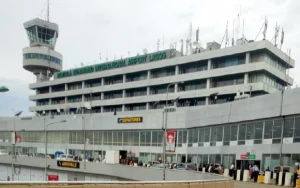
Despite ticking all the boxes, submitting meticulous paperwork, and fulfilling every known requirement, many Nigerians still find their visa applications denied — a growing concern that has left many frustrated and disillusioned. A travel expert, Mrs. Amaka Umeh, has offered key insights into why this troubling trend persists, shedding light on the often unseen forces at play behind embassy decisions.
Speaking at a recent travel seminar in Lagos, Mrs. Umeh, the founder of ClearPath Travel Consult, explained that meeting the listed requirements is not always enough to guarantee visa approval.
“A visa application is more than a checklist — it’s an evaluation of intent, risk, and credibility,” Umeh said. “Many applicants don’t realize that consular officers look beyond documents to assess whether a person is likely to return to Nigeria after their visit.”
According to her, one of the top reasons for rejection is the perceived lack of strong “ties to home” — evidence that an applicant will return to Nigeria after their trip. Even with steady employment, business ownership, or family commitments, applicants often fail to demonstrate this convincingly in their application or interview.
“Embassies are wary of high rates of overstaying and illegal immigration,” Umeh noted. “So they scrutinize applicants from countries with a history of such issues — and unfortunately, Nigeria is one of them.”
Another growing issue is inconsistencies in documentation or personal history. Simple discrepancies — like job titles that don’t match between a CV and a letter of employment — can raise red flags. Umeh warned that even minor errors can lead to doubts about credibility.
Moreover, visa officers are trained to make judgment calls within minutes. They assess hundreds of applications weekly, often without requesting additional information. “They don’t have the luxury of time. If something is unclear, they usually reject rather than request clarification,” she added.
Umeh also highlighted “sponsorship red flags” — where applicants depend on third parties, such as friends or distant relatives abroad, for financial support. “This can suggest the applicant lacks sufficient financial independence, which may raise concerns about long-term stay or financial burden,” she explained.
Finally, geopolitical issues and bilateral relations also quietly influence visa outcomes. “Strained diplomatic relations or reports of immigration violations can lead to unofficial tightening of visa approvals,” Umeh revealed.
While the expert acknowledged that the system can be opaque and frustrating, she urged applicants to approach visa applications with greater care and honesty. “Prepare thoroughly, avoid shortcuts, and seek professional guidance when necessary,” she advised.
As international mobility becomes increasingly vital for education, business, and personal growth, Umeh called on foreign embassies to enhance transparency and offer clearer feedback to applicants.
“People deserve to know why they were rejected. It’s only fair,” she said. “That way, they can correct the errors and try again — not just give up on their dreams.”






